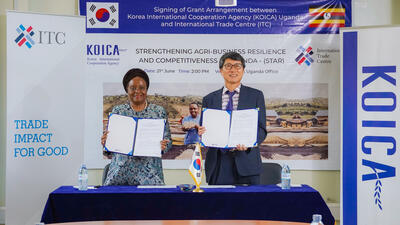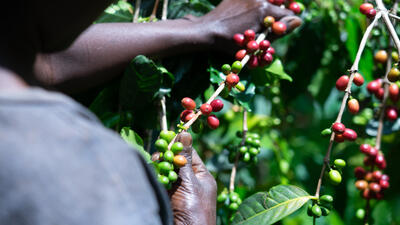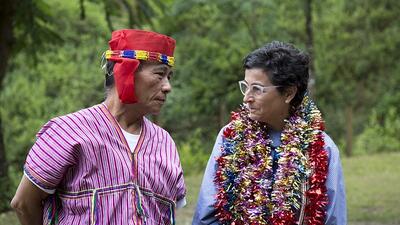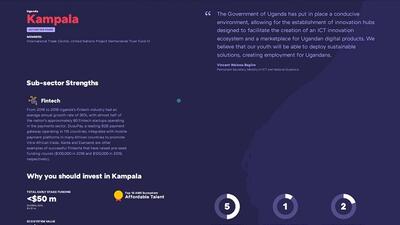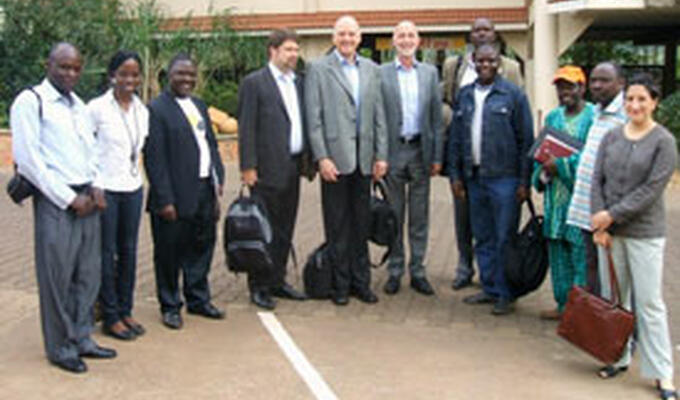

Hands-on approach helps to increase skills of Uganda’s farm associations (en)
The Steering Group of ITC’s NTF II Uganda project on 4-6 June visited farmers’ associations and farms in the country to get a first-hand experience of how the project is developing. The Steering group also met the projects partner organizations, the Uganda Export Promotion Board (UEPB), the Uganda Coffee Development Authority (UCDA), and the Export Promotion Council.
Meetings were also held with the Ministry of Trade and the Ministry of Agriculture. As part of the visit Trade Minister Amelia Kyambadde launched the update of the national export strategy for the coffee sector.
Read also: Uganda’s trade minister presents update to coffee export strategy
The Steering Group heard how the local partners appreciate the programme's focus, which aims to improve their members’ skills through a hands-on practical approach that addresses the priorities of the partners. Certified trade advisors, finance counsellors, trainers on export marketing and on 4C traceability have all helped to enhance the skills of farmers’ associations, which have had a positive knock-on effect on farmers.
'One of the keys to competitiveness is that companies, the public sector and service providers work together,’ Robert Skidmore, ITC’s Chief of Sector Competitiveness, told the audience at an export-strategy event arranged during visit. ‘What I see in Uganda is that people are working together, that we see this coherence developing,’ he said.
Complementing other technical assistance programmes run by National Union of Coffee Agribusinesses and Farm Enterprises (NUCAFE) — in particular its gender-equality programme — NTF II has helped to strengthen the capacity of family members to participate in the decision-making at their farm and to fairly use the resources it generates. This has helped empower women and allowed them to increase their living standards and ensure that their children stay at school. It has also encouraged farmers’ associations to register, create organisational structures, and increase their sales of processed and graded coffee beans. More than 1.3 million Ugandans depend on coffee for their livelihoods and the crop represents 17.5% of total export earnings.
‘For the first time, we have seen a change in approach toward implementing coffee projects in Uganda,’ said Joseph Nkandu, the Executive Director of NUCAFE. ‘In the past, projects have involved organisations that have limited accessed and close cooperation with the farmers. This time around, the projects have gone a longer way to working directly with a farm organisation like NUCAFE,’ he said.
'Our mandate, our mission, our vision is a facilitative one,' said Florence Kata, Executive Director of the Uganda Export Promotion Board, adding that it aims 'to brand Uganda on the world market as a reliable supplier of quality products, and coffee definitely stands out in the forefront.'
The NTF II project will continue to seek to support from the trade and agriculture ministries by providing information about the project's current status and achievements to mobilise support for specific follow-up activities.
Learn more about NTF II Uganda.









